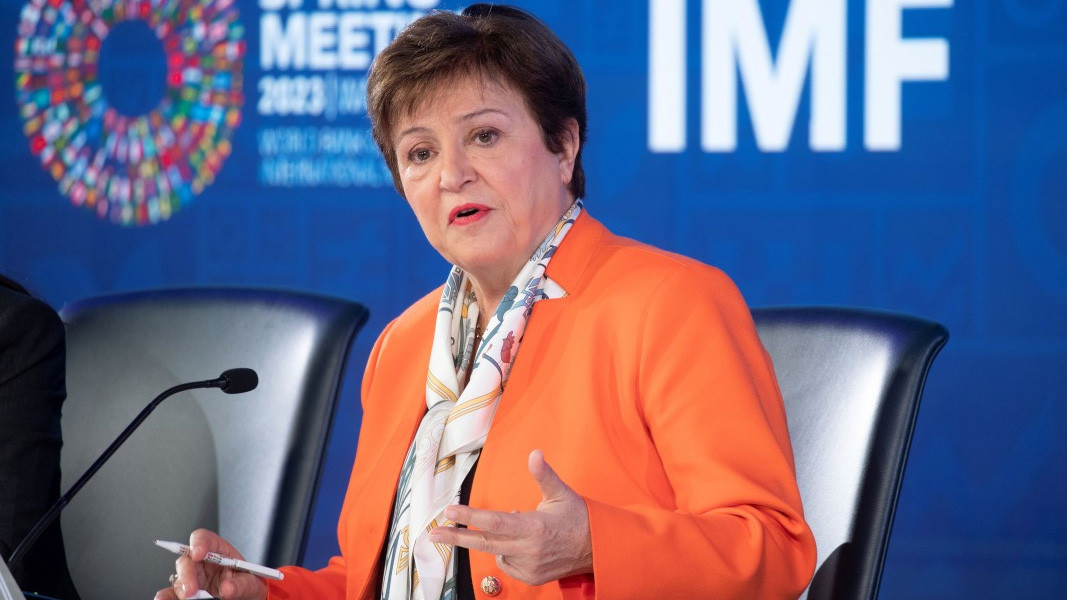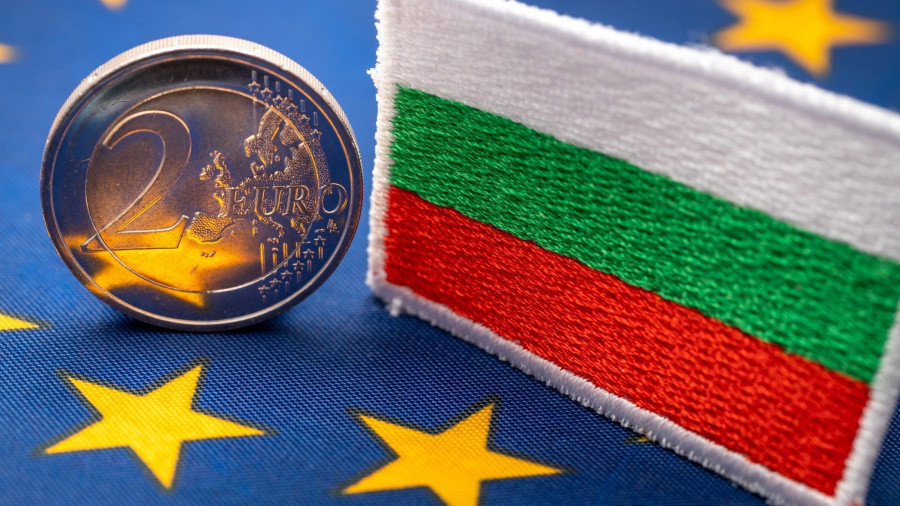Accession to Schengen and the Eurozone, membership of the Organisation for Economic Cooperation and Development – these are some of the top priorities of Bulgarian diplomacy. The target date for the introduction of the single European currency is set for 1 January, 2025.
“The best thing would be for Bulgaria to enter the Eurozone – there is a currency board in place in the country and our currency is pegged to the euro, and that means that the European Central Bank defines our policy. In a world that is growing more and more unpredictable, having the full support of the European Central Bank is good for the security of the Bulgarian citizens, and for the economy,” says Kristalina Georgieva, Managing Director of the International Monetary Fund. She says Bulgaria is handling its debt really well – 25-26% - which is far below the Eurozone requirement. In an interview with Nova TV she commented, that the fact that Bulgaria is lagging behind Croatia in regard to the euro is having an effect on the economy: “We have a tourist industry, why not help it by introducing a currency that is familiar all over the world? What is there to stop us, except for the doubts and hesitation that have to be cleared up,” she comments. 
“We still have work to do to combat inflation but we are moving in the right direction. Last year it stood at around 13%, this year it is close to 7% but more needs to be done. It is an obstacle that has to be at the focus of the attention of the politicians whose job it is to help the country’s entry into the Eurozone,” Kristalina Georgieva says.
To meet the criteria, Bulgaria must have a rate of inflation that does not exceed by more than 1.5 percentage points that of the three best-performing member countries in terms of price stability. To be able to meet the inflation criterion, it has to be at least approximately 3 percentage points lower, says economist Georgi Vuldjev from the Expert Club for Economics and Policy:
“The inflation rate should have dropped to the admissible levels as early as the beginning of next year. If a convergence report is to be required, that is going to take place at the beginning of 2024, not at the end of the year, and it has to be ready by mid-2024,” he explains.
As regards the legislative changes necessary for the country’s accession to the Eurozone – adopting a law on the euro and amending the Bulgarian National Bank Act - Georgi Vuldjev says he doesn’t believe there will be any significant disagreement at the National Assembly:
“At a political level among the parties involved in the government, directly or indirectly, there is no disagreement, the situation is very different compared to the beginning of the year. We even have the Movement for Rights and Freedoms, DPS, who seem to be fully in agreement, and have no objections as regards the legislative changes that are needed. Politically, within this parliament there do not seem to any serious barriers.”
The economist says an economic analysis of the development of the Eurozone by the Expert Club for Economics and Policy shows the Eurozone has a number of structural problems:
“It is not an optimal currency zone and this means there are a number of economic imbalances among the member countries. This currency union needs serious structural reforms to help it function,” Georgi Vuldjev says, and adds there are two solutions:
“One is for the Eurozone to be united in some way, as a country with a single fiscal and economic policy, so that these differences in the economic policies of the individual countries may be smoothed out. The other option is for the Eurozone to fall apart, and a return to national currencies. There will come a point when one or the other decision will have to be made.”
Here is how Prof. Andrey Zahariev, dean of the Department of Finances at the Dimitar A. Tsenov Academy of Economics comments on Bulgaria’s ambition to join the Eurozone with a target date 1 January, 2025:
“Having a date is a good thing because it gives us a target. But I believe that the Bulgarian National Bank and the Ministry of Finance, and all people in the government now have the job of communicating the message that it is a good thing for Bulgaria,” he says.
Interviews by Daniela Goleminova and Snezhana Ivanova, Horizont channel, BNR.
Compiled by Yoan Kolev
Photos: EPA/BGNES, Ivan Ruslanov-BNR, Pixabay, expert.bg
Butter and vegetable oil are the products that have increased in price the most over the year. The retail price of vegetable oil will range between 3 and 5 BGN (EUR 1.5-2.5) per liter until the new harvest. The value of the small consumer basket,..
The assets of private pension funds have reached EUR 13 billion. According to data from the Financial Supervision Commission, they have increased by more than 20% compared to the same period last year. As of September 30, 2024, the number of..
There has been an upsurge in the economy in every region of Bulgaria, the effects of the Covid crisis have been overcome, tourism has fully recovered, which is evident in Bulgarian seaside regions and spa resorts - this is the conclusion that is drawn..
Butter and vegetable oil are the products that have increased in price the most over the year. The retail price of vegetable oil will range between 3..

+359 2 9336 661
